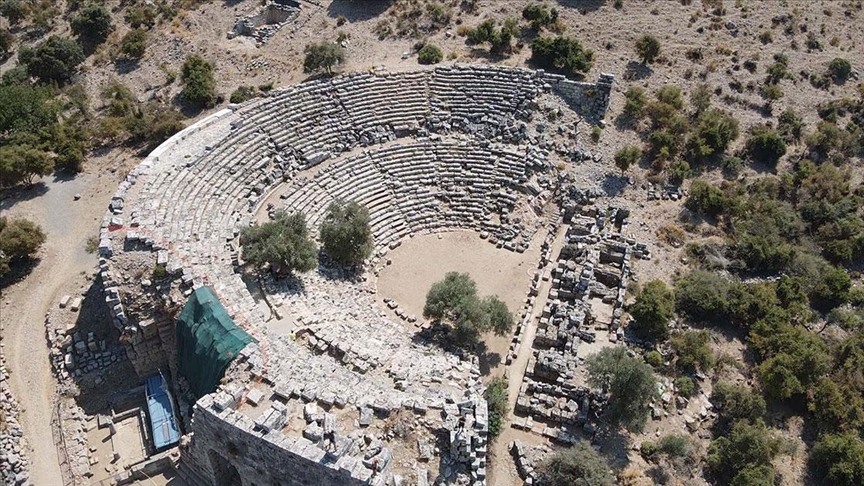MUGLA, Türkiye
Excavations in the ancient city of Kaunos, located in southern Türkiye, have uncovered the remains of a cistern and parts of a health system.
The 2,400-year-old rock tombs, a 5,000-seat theater, a basilica, a bathhouse, an agora, sacred sites, and 1,300-year-old mosaics in the area, which is listed on the UNESCO World Heritage Tentative List, continue to attract visitors’ interest.

This year’s excavations, primarily focused on the Archaic monastery area within the city walls, have revealed materials and structures not previously found in most other cities.
Ufuk Corturk, a faculty member in the Archaeology Department at Mugla Sitki Kocman University and the head of the excavation, told Anadolu that they have been working on the excavation of a Late Antique building complex in the monastery area for the past two years.
He said they began clearing the rooms of the building complex last year.

“This year, we have completed the excavation of four spaces. This is a large complex, consisting of a central courtyard, narrow streets leading to these courtyards, and rooms spread around the perimeter.”
He noted that the complex dates back to the 6th century AD and was last used during the Ottoman era, indicating that the building was occupied by the residents of Kaunos for a long time.
*Writing by Muhammed Enes Calli in Istanbul


